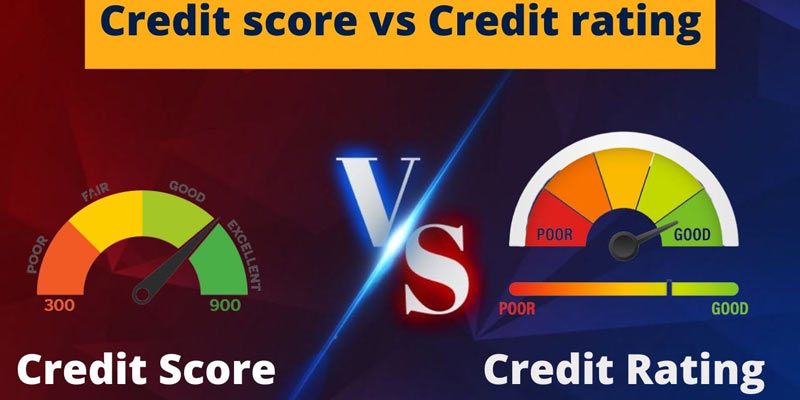What Is a No-Load Fund?
No-load funds are mutual funds that don't charge a commission or sales fee when investors purchase shares from the fund. Instead, no-load funds make money through annual management fees and other small charges. No-load funds can offer investors an easy way to diversify their portfolios without incurring hefty transaction costs. Unlike load funds, which require sales commissions, no-loads often provide higher returns over time due to the absence of these additional fees. As such, they are becoming increasingly popular with novice and experienced investors alike who want to maximize their investment profits while minimizing expenses.
Introducing No-Load Funds:
Mutual fund companies usually offer no-load funds dedicated to providing investors with cost-effective options for diversifying their portfolios. Many no-load funds also offer lower expense ratios than load funds, meaning that the annual expenses associated with managing the fund are much lower.
These funds often have a lower minimum investment requirement and no trading restrictions, making them ideal for investors who want to invest a small amount of money without having to pay hefty commissions or wait for certain conditions to be met before they can start buying and selling shares. No-load funds also provide access to a wide range of securities, from stocks and bonds to real estate, commodities, and other investments.
What Are the Benefits of a No-Load Fund?
No-load funds are typically more cost-effective than load funds, making them ideal for investors looking to save money. No-load funds usually have lower minimum investment requirements and no trading restrictions, allowing investors to start investing with less money at the outset.
No-load funds provide access to a wide range of investments, allowing investors to diversify their portfolios without incurring hefty commissions or fees. With no-load funds, investors can efficiently and cost-effectively create a portfolio that meets their needs, goals, and risk tolerance.
How Do No-Load Funds Work?

No-load funds are similar to traditional mutual funds, relying on an experienced fund manager for stock and bond selection which should align with the investment goals of that particular fund. The performance will vary depending on market conditions and sound decision-making from the appointed fund manager.
For investors looking to purchase no-load funds, they can be easily found through specialized brokerages or the fund company's website. Trading shares in such a fund is just as straightforward as any other stock or bond; buy and sell when you're ready!
Diversifying your portfolio without paying hefty commissions or sales fees has never been easier than with no-load funds. These funds provide investors with a vast selection of investments and the potential for savings. Still, they must conduct thorough research to ensure their chosen fund matches their investment goals, risk tolerance level, and other requirements. The right no-load fund can help you save money in the long run while earning higher returns on your investments - a win-win situation!
Types of No-Load Funds:

Asset classes like stocks, bonds, or money markets typically categorize no-load funds. Within each of these classifications, there are various types - such as index funds and actively managed funds - to choose from.
1.Index Funds:
Index funds attempt to replicate the returns of a particular market index, such as the S&P 500. Investors in these funds will not receive stock picking or other active management services, which helps keep costs lower than actively managed funds.
2.Actively Managed Funds:
Professional money managers manage these funds and select stocks and bonds based on their expected performance. These funds may offer higher returns, but they also come with higher fees than index funds.
3.Money Market Funds:

Money market funds invest in short-term debt securities designed to provide a steady return while preserving capital. These funds typically have lower risk than other no-load funds and can be a suitable option for conservative investors.
Pros and Cons of Investing in a No-Load Fund:
No-load funds offer investors access to a wide range of investments and often come with lower costs. They may have a different performance potential than actively managed funds, so investors must research the available options before making any decisions.
No-load funds can be ideal for conservative or cost-conscious investors looking to diversify their portfolios without paying hefty trading commissions. With the proper research and selection, no-load funds can help you achieve your financial goals while saving money.
Tips for Choosing the Right No-load Fund:
Do your research:
Before investing, read up on the fund's past performance and investment strategy.
Consider costs:
One of the main advantages of no-load funds is their lower cost, so make sure you compare fees across different funds to ensure you're getting a good deal.
Set realistic goals:
No-load funds can offer a wide range of potential returns, but it's important to remember that there are no guarantees in the stock market. Be sure to set realistic goals and expectations for your investments.
Stay diversified:
Don't put all your eggs in one basket - diversify your portfolio to help manage risk and maximize returns.
Review regularly:
Keep an eye on the market and review your investments periodically to ensure you stay on track with your goals.
Conclusion:
No-load funds offer investors an excellent opportunity to diversify their portfolios without paying hefty trading commissions. With the proper research and selection, no-load funds can help you achieve your financial goals while saving money. Be sure to do your due diligence, compare fees across different funds, set realistic goals, diversify, and review your investments periodically.
FAQs:
Are no-load funds better?
No-load funds can be an excellent option for investors looking to diversify their portfolios without paying hefty trading commissions.
What is a load fund vs. a no-load fund?
Load funds have a sales charge, or "load," associated with them. No-load funds do not have a sales charge and are generally more cost-effective for investors.
What is the disadvantage of buying a no-load fund?
The main disadvantage of buying a no-load fund is that it may have a different performance potential than actively managed funds. Investors need to do their research and compare funds before making any decisions.
On this page
Introducing No-Load Funds: What Are the Benefits of a No-Load Fund? How Do No-Load Funds Work? Types of No-Load Funds: 1.Index Funds: 2.Actively Managed Funds: 3.Money Market Funds: Pros and Cons of Investing in a No-Load Fund: Tips for Choosing the Right No-load Fund: Conclusion: FAQs:
By John Davis : May 29, 2023
Don’t Miss These 3 Tax Credits When You File This Year
Get the most out of your tax return this year and maximize your savings with these three overlooked tax credits. Learn about Earned Income Credit, Child and Dependent Care Credit, and Education Credits to ensure you get all the deductions!
Read More
9317

By Rick Novak : Feb 23, 2023
What is a Prudent Investment
A prudent investment is the acknowledged use of financial securities appropriate for the objectives and goals of the investor. Good fiduciaries closely track the results of the investments they have chosen for their customers to ensure that they are accomplishing their intended goals. The Prudent Investor Rule requires fiduciaries to make sensible investment and financing decisions for their customers based on the data available.
Read More
11175

By Rick Novak : Apr 26, 2023
How Are Fees for ETFs Deducted?
Due to their cheap fees, diversification, and convenience of trading, exchange-traded funds (ETFs) have gained popularity among investors. Many shareholders, however, wonder how ETF fees are removed from their investments.
Read More
8036

By Rick Novak : Jun 28, 2023
M1 Finance Review: An Overview
For experienced investors who favor a low-cost customized portfolio solution, M1 Finance is a wonderful choice. The main customization method is screening and choosing from 60 pre-built investment portfolios or developing your own. The borrowing and spending options offered by M1 Finance may appeal to investors looking for more product possibilities in a platform.
Read More
15592

By Aldrich Acheson : Sep 05, 2024
Picking the Best Bank for You: A Practical Approach to Making the Right Choice
How to choose the best bank for your needs in 2024 by evaluating key factors like fees, customer service, digital tools, and more. Make informed banking choices
Read More
1387

By Rick Novak : May 01, 2023
How FIFA Makes Money
Learn how the world's leading football organization makes money and why it’s still successful. Get an in-depth look at their business strategies to generate revenue and drive success.
Read More
12565

By Kelly Walker : Jul 30, 2023
Are We in a Bull Market or a Bear Market?
Tired of wondering why stocks and markets fluctuate so much? In this blog post, we’ll explain what separates bear from bull markets and how you can determine which type of market you're currently participating in.
Read More
2765

By Rick Novak : Mar 29, 2023
Top Agriculture Stocks 2023
The top agriculture stocks for investors to consider focus on companies with a strong market position, innovative products, and a commitment to sustainability. The ten companies highlighted in the article include Archer-Daniels-Midland Company, Deere and Company, Nutrien Ltd., Bunge Limited, Corteva, Inc., Agrium Inc., Monsanto Company, Syngenta AG, Mosaic Company, and Zoetis Inc. Investing in these companies can provide exposure to the agriculture sector and the potential for long-term growth.
Read More
1730

By Kelly Walker : Jun 03, 2023
T. Rowe Price Review
Learn how T. Rowe Price can help improve your financial future with its portfolio management and investing services. Our expert review will provide valuable insight into navigating the world of investments and securing a better retirement plan for yourself!
Read More
186

By Rick Novak : Jan 28, 2023
What Is a No-Load Fund?
No-load funds are an excellent option for investors looking to diversify their portfolios without paying hefty trading commissions. They offer low costs, a wide range of potential returns and the ability to manage risk and maximize returns through proper research and selection.
Read More
6297

By Kelly Walker : Jun 28, 2023
Best Students Credit Cards Of 2023: A Detailed Guide
Get the most out of your college experience by choosing the best student credit cards. We compare and review the top picks so you can make an informed decision.
Read More
18387

By Kelly Walker : Mar 06, 2023
Credit Rating vs. Credit Score: What’s the Difference?
Wondering what the difference is between your credit rating and credit score? This post breaks it all down for you, so you can understand how they work together to impact your finances.
Read More
6084